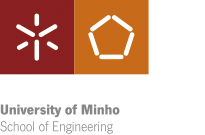Thursday, 9/28/2017
The IAPMEI – Agency for
Competitiveness and Innovation recently recognised 20 national competitiveness
clusters. The Portuguese Railway Platform Cluster is the highlight of this edition
and counts on the intervention of the School of Engineering of the University
of Minho (EEUM).
Companies, entities from the national
scientific and technological system and other industrial partners working in
the railway sector have gathered in a platform to join efforts in solving
specific problems and searching for innovative solutions in the railway sector.
The Portuguese Railway Platform Cluster (PFP) brings together the main
national stakeholders in the railway industry. The PFP aims at defining a
common strategy for planning railway research and innovation, as well as at promoting joint initiatives and research, development and innovation
(R&D&I) projects, boosting new business opportunities and the sector’s
internationalisation. Currently, the PFP counts on more than 40 associate
members, 70% of which are industry partners and the remaining 30% business
associations and other entities which are part of the national scientific and
technological system.
António Gomes Correia, Vice-Dean of the EEUM and Full Professor of the
Department of Civil Engineering (DEC) of the School, is UMinho’s representative
for this Cluster. “This Cluster intends to gather capacities and competences
for common goals, in a general framework of cooperation and knowledge exchange
working towards increasing competitiveness and innovation capacity. The
realisation of this project will benefit not only all stakeholders in this
sector but also the national economy”, the researcher refers. “Until 2020, we
envision and aim to turn Portugal into an international reference centre for
the railway sector and a privileged location for developing R&D&I
projects, which will ultimately contribute towards increasing the
competitiveness of our national economy”, he adds.
The Platform is based on eight working groups: Rolling stock;
Attractiveness; Command, control and communications; Infrastructure; Energy
efficiency; Freight; Interoperability; Knowledge management. “In practical
terms, the EEUM takes part in this Cluster through the activity of research centres ALGORITMI,
CT2M, CTAC, IPC and ISISE, by offering skills mainly on infrastructure,
innovative materials and energy efficiency”, António Gomes Correia refers.
Among other activities carried out within the scope of
PFP’s activity, the School of Engineering is already involved in several
projects. In the framework of the Cluster creation, the Faculty
of Engineering of the University of Porto (FEUP) and the EEUM, in association
with the University of São Paulo (USP), Brazil, proposed the creation of a new PhD
programme, ultimately approved. Funded by the FCT, the programme entitled iRail
(Innovation in Railway Systems and Technologies), will allow advanced training
oriented towards railway activities (aligned with the Shift2Rail project)
within the scope of existing doctoral programmes in areas such as civil,
electronics, mechanical and materials engineering. The group also submitted an
application to the mobilising
programme (COMPETE 2020) RailCapacity, which was however unfavourably
assessed.
More recently, the application submitted to SIAC (pport System to Collective
Actions - Operational Programme Competitiveness and Internationalisation of
Portugal 2020) for Clusters was approved, which will leverage the financial
support for the Cluster’s activities. Furthermore, all participating
institutions are looking out for new opportunities, particularly those within
the scope of Shift2Rail, as the UMinho and other Cluster entities are associate
members of this project.
As far as future
Cluster activities are concerned, António Gomes Correia informs that “the
Cluster is mobilised to submit a proposal to create a collaborative laboratory,
which will reinforce the activities already being carried out. The laboratory
would allow us to define and implement a research and innovation agenda,
oriented towards creating social and economic value. This would include internationalisation
of national scientific and technological capacities, in railway and other
similar areas, boost scientific employment and conduct R&D activities which
would support new synergies with higher education institutions, namely as far
as specialised, professional or advanced studies programmes in cooperation with
social and economic partners are concerned”.
In February 2017, within the presentation of the Interface Programme,
the PFP was recognised by the Portuguese Government as a Competitiveness
Clusters, along with other 19 national Clusters.
+ info: www.ferrovia.pt

